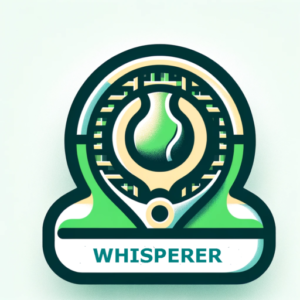The Science of Sleep: Rewiring Your Game
The Science of Sleep: Rewiring Your Game
Most tennis players think their best work happens on the court. But the truth is, your sharpest improvements occur when you’re off it — during sleep.
That’s because sleep is when neuroplasticity — the brain’s ability to rewire itself — automatically does its deepest work. Think of it as your brain’s nightly software update.
During sleep, the brain decides which connections to strengthen, which to stabilize, and which to prune away. The split step you drilled, the new backhand grip you tested, the anticipation pattern you rehearsed — all of these are replayed and reinforced while you rest.
Fragile motor skills that felt shaky in practice become more reliable. Tactical choices you made under pressure are refined into faster, more automatic responses. Even emotional control circuits get sharpened, helping you stay composed when matches tighten.
In short: what you practice when awake only becomes permanent when you sleep. Your brain is doing the coaching, you just have to give it the hours it needs.
For mature competitors, this is gold. As physical speed declines, sharpness increasingly depends on a brain that can adapt, anticipate, and stay calm under fire. Sleep is where that rewiring — and your recovery — happens.
Why Science Says Sleep Is Training
Sleep is more than rest — it’s when your brain does the real training. During deep and REM sleep, your nervous system takes the raw work from practice and converts it into lasting skill. This is the stage where stroke mechanics become automatic, footwork patterns become ingrained, and tactical decisions become faster and more reliable. In effect, your body trains on court, but your brain finishes the job overnight.
-
Skill Consolidation: During deep and REM sleep, the brain strengthens neural circuits, turning footwork drills and stroke patterns into long-term motor memory.
-
Timing Matters: When sleep follows practice closely, motor memory retention improves by up to 30%, thanks to sleep spindles and neural coupling.
-
Improved Coordination: Practicing complex movements before sleep enhances accuracy and reduces error rates the next day.
Why Science Says Sleep Is Recovery
Recovery isn’t just about what you do after practice — it’s about what your body does while you sleep. During the night, every system that tennis stresses is restored: muscles repair, hormones rebalance, and energy stores refill. This is when the body transforms fatigue into freshness and ensures you’re ready to perform again the next day.
-
Muscle Repair: Deep sleep triggers growth hormone release, repairing micro-tears from intense play.
-
Hormonal Rebalance: Sleep lowers cortisol while boosting melatonin and testosterone — ideal for recovery.
-
Immune & Injury Resilience: Good sleep reduces illness and injury risk; poor sleep increases both.
-
Energy Restoration: Sleep replenishes glycogen stores and resets ATP production, fueling endurance and explosiveness.
Whisperer Wrap
Sleep is both your hidden practice court and your ultimate recovery lab. Neuroplasticity will rewire your brain automatically — but only if you give it the conditions to do so. Every night’s quality sleep sharpens anticipation, strengthens decision-making, and embeds motor skills. At the same time, it restores muscles, rebalances hormones, and recharges energy systems.
For the mature player, this isn’t optional — it’s your edge. Protect your sleep as fiercely as your serve. Schedule it like a training block, guard it like a recovery session, and remember: the player who wins tomorrow is the one whose brain and body rewired most effectively overnight.
References
-
Walker, M.P., & Stickgold, R. (2017). Sleep, memory, and learning. Nature Human Behaviour.
-
Schönauer, M. et al. (2017). Sleep’s role in motor memory consolidation. ScienceDirect.
-
Göldi, M. et al. (2024). Timing of sleep after learning shapes motor skill retention. Journal of Neuroscience.
-
Scharfen, H.-E. et al. (2020). Sleep and motor learning in sports. Springer Sports Medicine.
-
Fullagar, H.H.K. et al. (2015). Sleep and athletic performance: the scientific evidence. Sports Medicine.
-
Mah, C. et al. (2025). How athletes use sleep to improve performance and recovery. Sleep Health Network.
-
Rising Researchers (2025). Sleep’s effect on the recovery of athletes. Rising Researchers Journal.
-
Sports Minds (2025). Maximizing recovery and performance: the role of sleep in sports. Sports Minds.




